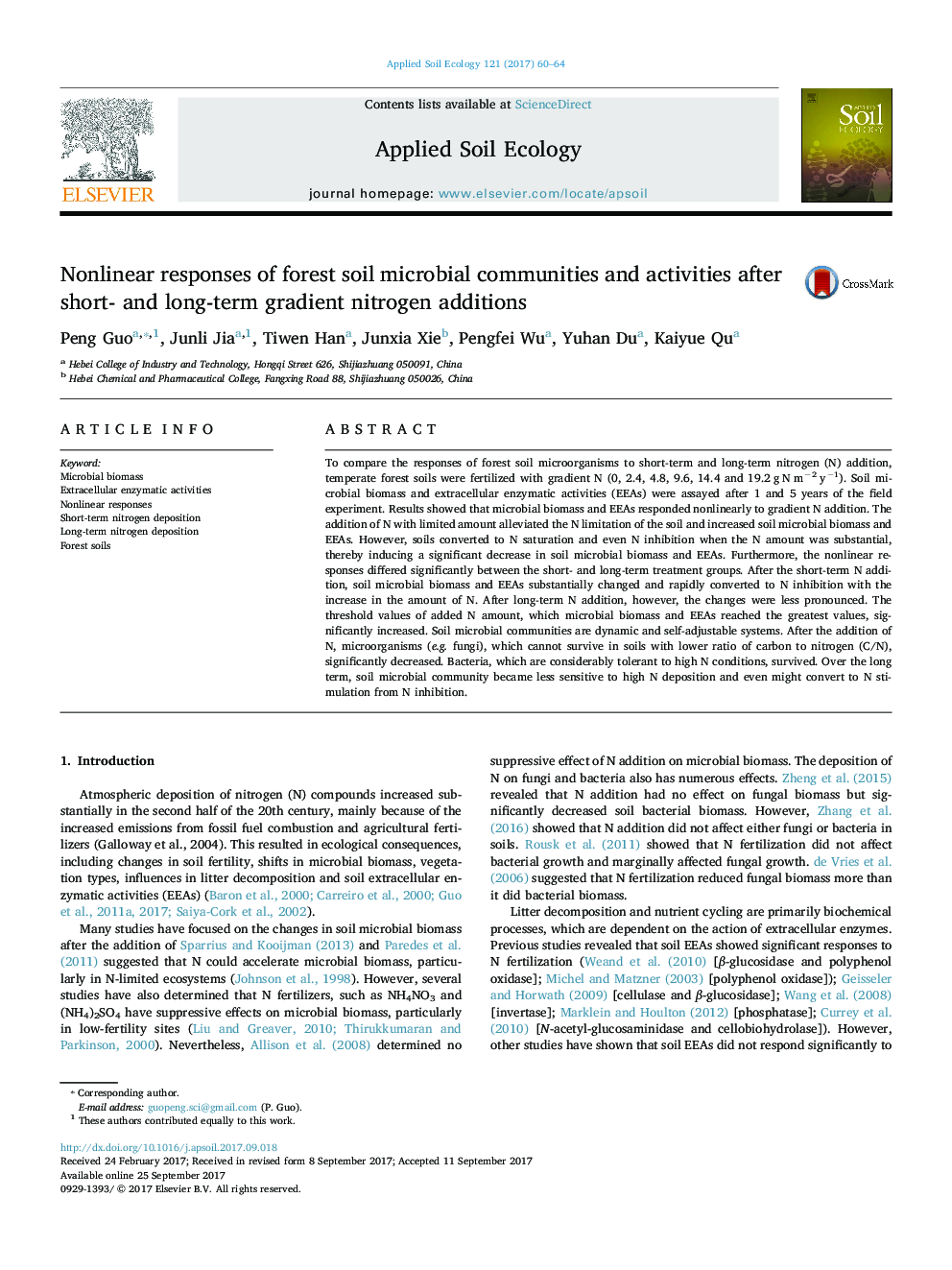| کد مقاله | کد نشریه | سال انتشار | مقاله انگلیسی | نسخه تمام متن |
|---|---|---|---|---|
| 5742544 | 1617763 | 2017 | 5 صفحه PDF | دانلود رایگان |
- N addition with less amount increased soil microbial biomass and activities.
- Soil microbial biomass and activities decreased after great N addition.
- After a long-term N addition, soil microbes became less sensitive to great N.
To compare the responses of forest soil microorganisms to short-term and long-term nitrogen (N) addition, temperate forest soils were fertilized with gradient N (0, 2.4, 4.8, 9.6, 14.4 and 19.2 g N mâ2 yâ1). Soil microbial biomass and extracellular enzymatic activities (EEAs) were assayed after 1 and 5 years of the field experiment. Results showed that microbial biomass and EEAs responded nonlinearly to gradient N addition. The addition of N with limited amount alleviated the N limitation of the soil and increased soil microbial biomass and EEAs. However, soils converted to N saturation and even N inhibition when the N amount was substantial, thereby inducing a significant decrease in soil microbial biomass and EEAs. Furthermore, the nonlinear responses differed significantly between the short- and long-term treatment groups. After the short-term N addition, soil microbial biomass and EEAs substantially changed and rapidly converted to N inhibition with the increase in the amount of N. After long-term N addition, however, the changes were less pronounced. The threshold values of added N amount, which microbial biomass and EEAs reached the greatest values, significantly increased. Soil microbial communities are dynamic and self-adjustable systems. After the addition of N, microorganisms (e.g. fungi), which cannot survive in soils with lower ratio of carbon to nitrogen (C/N), significantly decreased. Bacteria, which are considerably tolerant to high N conditions, survived. Over the long term, soil microbial community became less sensitive to high N deposition and even might convert to N stimulation from N inhibition.
Journal: Applied Soil Ecology - Volume 121, December 2017, Pages 60-64
